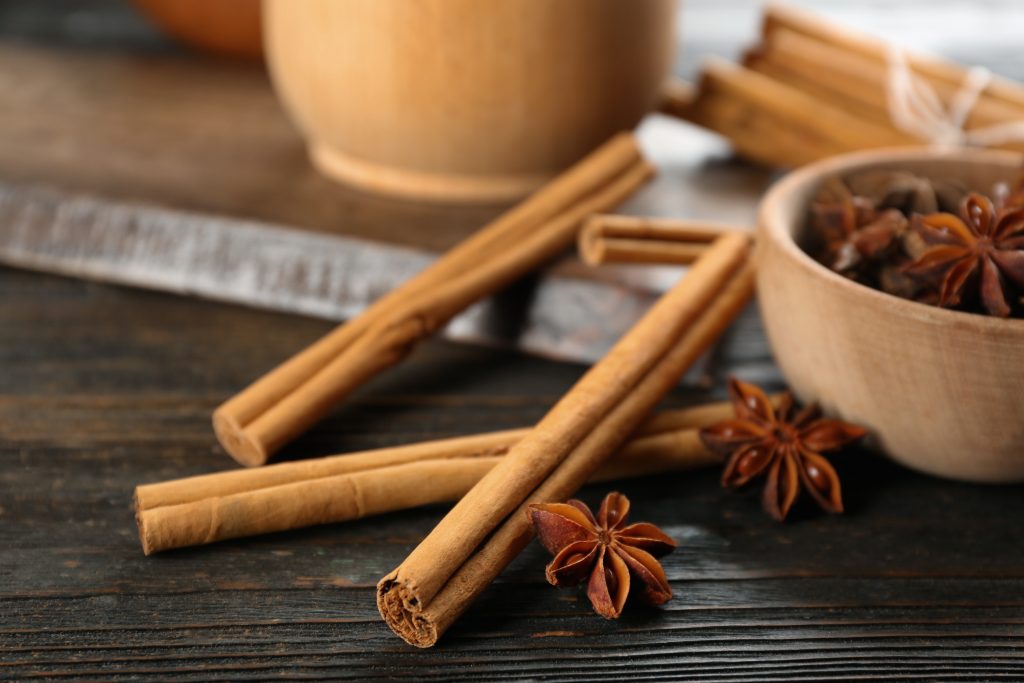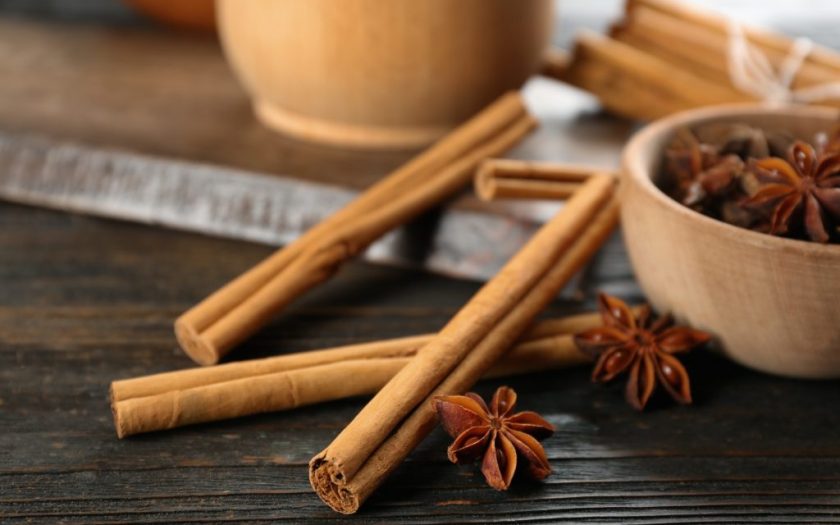Cinnamon in our households
Nowadays, we can’t imagine a kitchen without cinnamon, especially during holidays like Christmas. Cinnamon is today valued as a spice but also as a medicine. It is interesting to note that in ancient times it was more valuable than gold. Today, this plant, which we mostly recognize as a spice, is known for its beautiful aroma and sweet taste, and we find it in a stick or powder.
There are over a hundred types of cinnamon, and their key health benefits come from the ingredients hidden in its bark. Cinnamon is known to have an effect today on conditions such as obesity, diabetes and dyslipidemia. In traditional medicine, cinnamon extract is used in conditions such as arthritis, diarrhea, irregularities in the menstrual cycle.
Today, this spice or plant is recognized by its antibacterial, antioxidant, anticancer, anti-inflammatory, hypoglycemic action. It also helps lower cholesterol and protects us from various cardiovascular diseases. Although today we find it in almost all households as a spice, it is important to know that this plant is much more than an addition to sweets.

Cinnamon and its health benefits
Cinnamon is known primarily as a spice obtained from the bark of trees, we can use it in the form of sticks or as a finely ground powder. As it is obtained from the bark of trees, it contains many nutrients and properties such as antioxidants, dietary fiber, minerals in the form of magnesium, iron and potassium and sodium, vitamins A, C and B groups.
Due to all the listed ingredients it contains, it has anti-inflammatory, antioxidant and healing properties on our body. The recommended daily dose of cinnamon consumption is at least 6 grams. What is the best way to use this spice? With it we can spice up various dishes, drink it in tea, eat it in yogurt. Today, Ceylon and cassia are the most famous cinnamon.
Ceylon comes from Sri Lanka and is generally healthier, while Cassia comes from China and is not so healthy. Regardless of who we consume, it is important to know how much we are allowed to consume and for what. And while it has been proven that this spice is healthy and useful for our body, it is important not to overdo it. If we use it excessively, liver damage can occur.
Cinnamon and its benefits
In addition to having strong antioxidant properties and anti-inflammatory and anti-allergic effects, cinnamon also helps balance blood sugar and protects against diabetes. It also lowers our blood pressure and keeps our heart healthy. Recent research shows that it reduces the risk of dementia and Alzheimer’s disease and has anti-cancer effects thanks to its antioxidants.
Cinnamon It also has a strong effect against infections such as colds and flu, preserves the health of the oral cavity and eliminates bad breath. When is it best to apply this spice? For colds or flu, just add half a teaspoon of cinnamon to plain tea. It also helps with insect bites, it is enough to mix a little ground cinnamon with honey and apply to the sting.
It can also help with weight loss, gives an additional boost to the metabolism and quenches the craving for food. It is good if there is a problem with digestive problems, it is enough to add half a teaspoon of cinnamon to warm water and drink. It is almost impossible to list all its benefits and benefits to our body, but one thing is for sure, and that is that it is more than a holiday spice.
10 Health Benefits of Cinnamon
- Cinnamon Is High in a Substance With Powerful Medicinal Properties
- Cinnamon Is Loaded With Antioxidants
- Cinnamon Has Anti-Inflammatory Properties
- Cinnamon May Cut the Risk of Heart Disease
- Cinnamon Can Improve Sensitivity to the Hormone Insulin
- Cinnamon Lowers Blood Sugar Levels and Has a Powerful Anti-Diabetic Effect
- Cinnamon May Have Beneficial Effects on Neurodegenerative Diseases
- Cinnamon May Protect Against Cancer
- Cinnamon Helps Fight Bacterial and Fungal Infections
- Cinnamon May Help Fight the HIV Virus
source: healthline
More Heath news: Reaction of baking soda and vinegar uses
